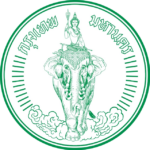Data centre service market to expand 8%

Thailand’s data centre services market is projected to grow by 8% this year to 12.7 billion baht, driven by rising demand for greater processing power to support companies’ adoption of artificial intelligence (AI) and enlarged data storage.
The finance, wholesale and retail, and healthcare sectors are taking the lead in data centre service demand, according to Kasikorn Research Center (K-Research).
The data centre services market is expected to account for 43.3% of the overall Thai data centre market this year, with the remainder coming from companies’ investment in their own data centres, noted the research house.
“Thai businesses are increasingly shifting towards using data centre services instead of investing in their own infrastructure, in order to reduce cost and gain access to AI solutions for data analytics offered by service providers alongside demand for data storage,” said Theeraphoom Vuthipramote, a researcher at K-Research.
Thailand’s data centre services industry has posted continuous growth over the past five years, with total revenue tallying an average annual growth rate of 12.6% thanks to the work-from-home trend driven by the pandemic.
“However, the growth trends to slow down due to the economic challenge and the uncertainty stemming from the US’s reciprocal tariff that threatens to worsen the economy,” said Mr Theeraphoom.
Roughly 94% of the demand for data storage services in Thailand comes from private sector enterprises, driven by the increasing adoption of digital technologies for business planning and customer engagement.
Many Thai businesses are beginning to experiment with and implement AI technologies, which has rapidly increased the volume of data that needs to be processed and stored — further driving the demand for data centre services.
Organisations, particularly small and medium-sized enterprises (SMEs), are choosing to use third-party data centre services, instead of building their own data centres, due to the high cost and resource requirements involved in infrastructure, personnel, and technology.
In addition, businesses are increasingly choosing data centre services because many providers now offer AI-powered data analytics solutions alongside storage services.
As of 2024, some 17.8% of Thai organisations had adopted AI, while 73.3% planned to do so in the future.
Roughly 72% of total revenue in Thailand’s data centre services industry comes from providing services to the sectors of finance, wholesale and retail, and healthcare.
The financial sector accounts for 27% of such revenue, followed by wholesale and retail (25%), and the healthcare sector (20%).
The data centre services business for the financial sector is expected to grow in line with the increasing demand for data storage driven by financial transactions through modern payment systems, such as PromptPay and e-wallets, which together currently account for over 90% of all payment transactions in Thailand.
In addition, the increasing role of AI in identity verification through facial recognition has further driven demand for data centre services in the financial sector.
Meanwhile, the use of AI in product recommendation systems within the wholesale and retail sectors is driving the growth of the data centre services market.
The data centre services market in the healthcare sector is expected to grow in response to increasing demand for the storage of patient and related data.
For example, AI chatbots that assist in the process of diagnosis and follow-up care generate conversations and there is a need for these conversations and health-related data to be stored, thereby contributing to a significant increase in the volume of data requiring storage.
Looming risks
Mr Theeraphoom said the medium- to long-term risks facing Thailand’s data centre services industry are the planned enforcement of the Climate Change Act, which may pressure data centre service providers to increase their use of clean energy, as data centres consume vast amounts of electricity for data processing.
Large-scale data centres can consume electricity equivalent to that used by hundreds of thousands of households per year. If the electricity were sourced from fossil fuels, it could lead to a high level of greenhouse gas emissions, making it more difficult for businesses to meet their environmental sustainability goals.
Local competition in the data centre market is intensifying, with Thai service providers facing increasing pressure from regional rivals such as Malaysia and Singapore, which offer comprehensive data centre services throughout the region.
This competition will intensify over the next couple of years when the regional data centre providers complete construction of their data centres in Thailand.
A shortage of advanced digital talent also poses a significant challenge to the data centre services industry in Thailand.
This sector relies heavily on specialised professionals, but Thailand currently does not produce a sufficient number of such experts.
This is reflected in the fact that multinational data centre investors have initiated digital skills development programmes for Thai personnel to address the gap between demand and the availability of such skilled personnel in the market.
